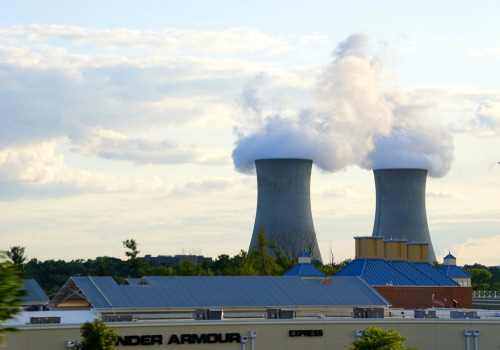
The state Senate has passed a bill that would prevent Pennsylvania joining the Regional Greenhouse Gas Initiative (RGGI) without first getting the approval of the state legislature.
The Pennsylvania Carbon Dioxide Cap and Trade Authorization Act was approved in the Senate on Monday on a 35-15 vote, which included six Democrats and featured a veto-proof margin. The Senate vote sends the measure to the House for its consideration.
The RGGI is a regional program involving 11 states that banded together in 2005 to establish a mandatory cap-and-trade program for carbon dioxide (CO2) emissions from fossil-fuel power plants as a means of reducing greenhouse gases and slowing climate change. In 2019, Gov. Wolf directed the Department of Environmental Protection (DEP) to make the necessary arrangements to make Pennsylvania the 12th member state in the RGGI.
Senate Republicans said in a written statement that the Authorization Act is identical to bills introduced during the last legislative session, including House Bill 2025, which passed but was then vetoed by Wolf.
State business interests, certain labor organizations, and their Republican supporters see the program as a form of tax on energy consumers, which legally requires an approval by the General Assembly. The program is also seen as being harmful to energy consumers and a threat to Pennsylvania’s coal and natural gas industries; Pennsylvania would be the only energy-producing member state in the RGGI.
“A carbon tax is a major energy and fiscal policy initiative that – if it is to be imposed on Pennsylvania employers – must be approved by the General Assembly,” said State Sen. Joe Pittman (R-41), the measure’s sponsor. “Beyond the severe financial impact this tax would have on coal-and-gas electric generation as well as consumers, it also creates serious constitutional questions of checks and balances between co-equal branches of government.”
Pittman’s bill prohibits the state from signing on to RGGI or any other similar interstate pact without the blessing of the General Assembly. It would also establish a process that would extend the timeline for a decision. The bill requires the DEP to first formally publish its RGGI plan in the PA Bulletin and then accept public comments for another 180 days, including at least four public hearings in locations that would be directly impacted by the plan.
Furthermore, the DEP would then submit a detailed report on the environmental and economic impact the RGGI would have on the entire state as well as specific communities and the regional PJM Interconnection power grid.
Democrats argue that the transition from fossil fuels to green energy is already underway in Pennsylvania with or without participation in the RGGI. Joining the initiative and sharing in the proceeds of the CO2 auctions will provide revenues that will cushion the blow on individuals and communities.
Democrat-sponsored legislation introduced in the capital would create the mechanisms needed to target future RGGI proceeds specifically to communities that are most feeling the impact of climate change. “It’s clearer than ever the energy industry is changing forever, not due to government regulation, but to simple economic realities,” said Rep. Dianne Herrin (D-156). “With this RGGI plan, mechanisms would be in place to support these hard workers and communities with worker training programs and economic development opportunities.”